
Politics
17:36, 06-Aug-2017
Do UN sanctions against DPRK really work?
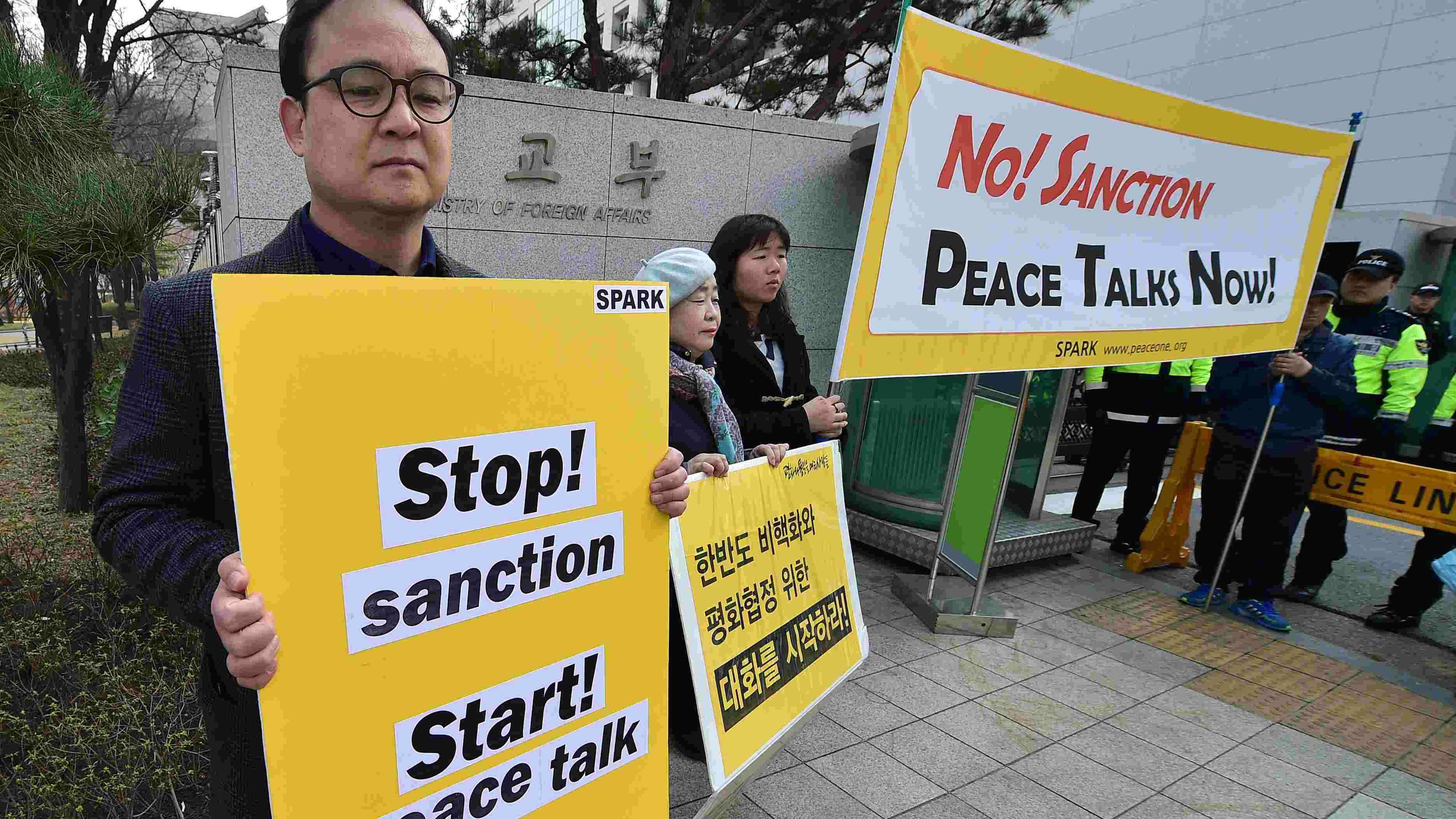
The UN Security Council adopted on Saturday a US-drafted resolution that significantly strengthened sanctions on the Democratic People's Republic of Korea (DPRK) in response to Pyongyang's consecutive launches of two intercontinental ballistic missiles (ICBM) in July.
The resolution imposes a ban on exports and places a limit on investments.
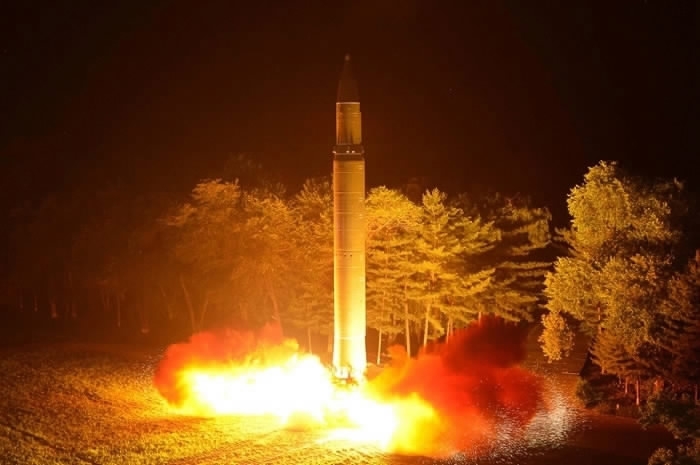
The DPRK tested a Hwasong-14 ICBM on July 29, 2017. /Reuters Photo
The DPRK tested a Hwasong-14 ICBM on July 29, 2017. /Reuters Photo
The US ambassador to the UN, Nikki Haley, said it was "the most stringent set of sanctions on any country in a generation." Meanwhile, US President Donald Trump tweeted that the sanctions would cost the DPRK more than one billion US dollars, a third of what Pyongyang earns from exports annually.
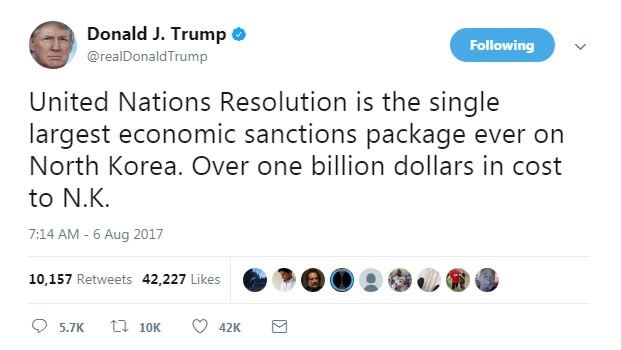
Screenshot of US President Donald Trump's tweet
Screenshot of US President Donald Trump's tweet
Repeated sanctions have so far failed to deter the DPRK from continuing the development of its missile program and nuclear capabilities. In recent years, the pace of missile launches and nuclear tests has significantly increased.
Since February, it fired a total of 18 projectiles in 12 tests.
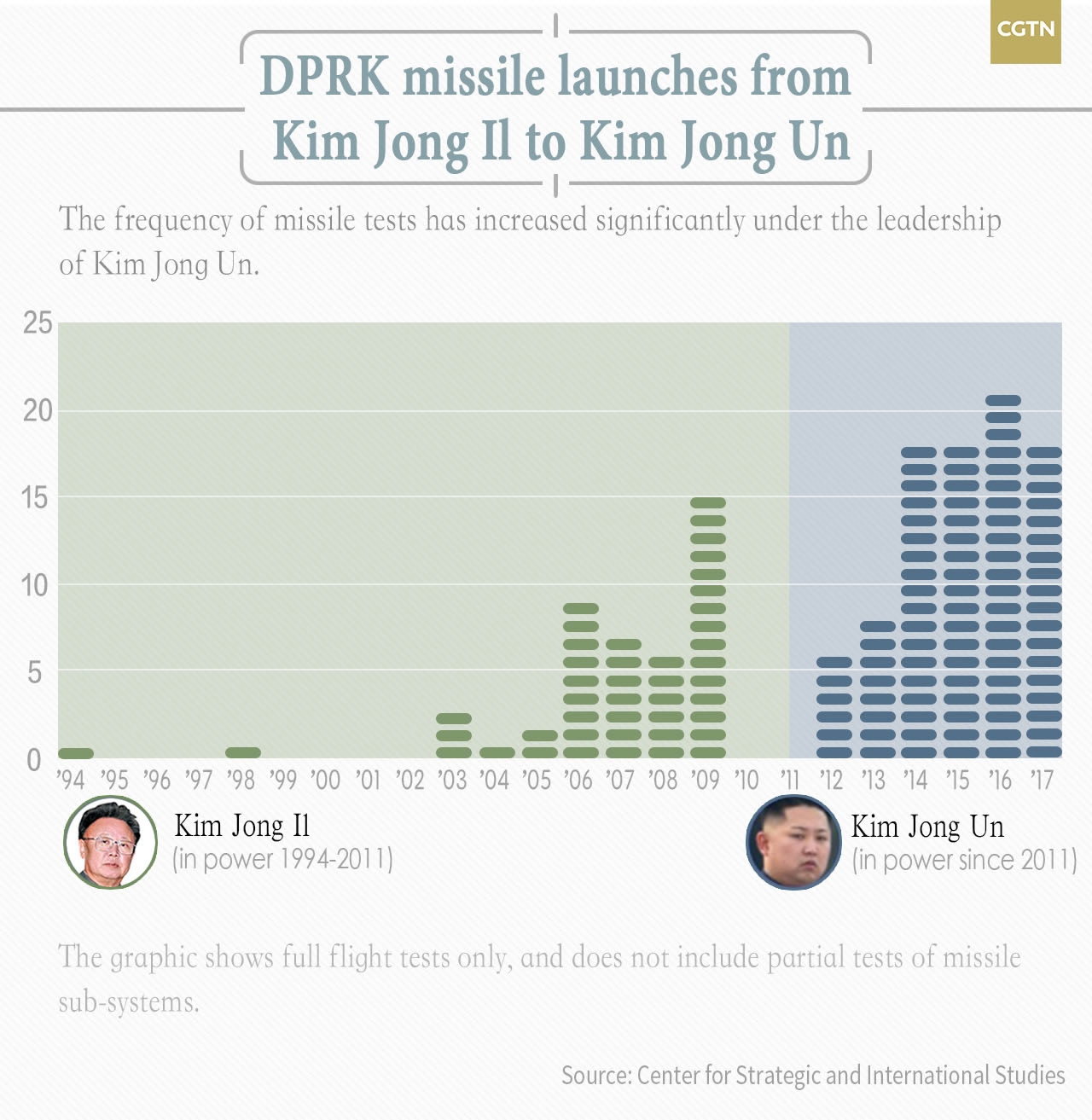
Sanctions ineffective so far
The UN Security Council has adopted six resolutions since 2016, imposing a host of sanctions on the DPRK over its missile and nuclear program.
The hope was that a combination of UN and bilateral punitive measures would persuade the DPRK to halt its controversial military activities. Nonetheless, the United Nations Panel of Experts tasked with monitoring the DPRK said the implementation of the resolutions by UN member states "remains insufficient and highly inconsistent."
"The DPRK is flouting sanctions through trade in prohibited goods, with evasion techniques that are increasing in scale, scope and sophistication," said a report by the committee in February.
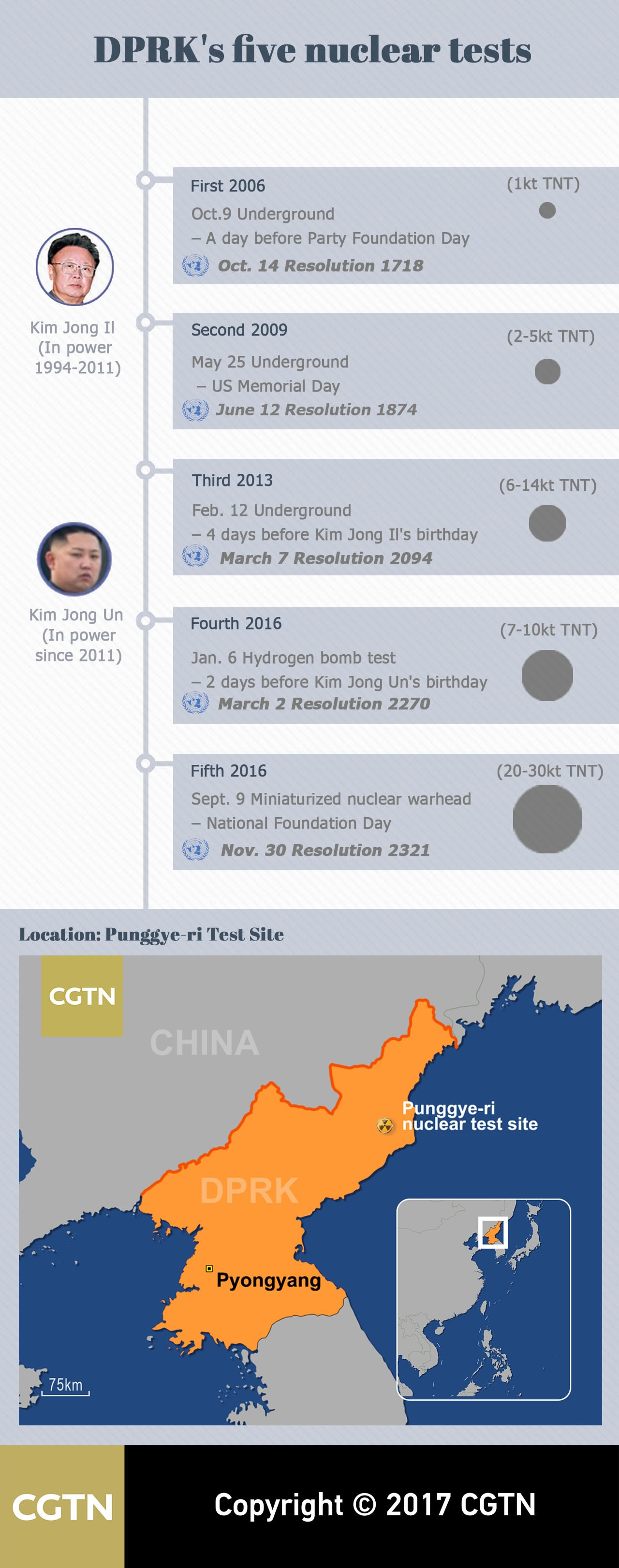
According to the report, the DPRK managed to set up companies abroad, participate in prominent regional arms fairs and sell high-end arms and related materials in multiple countries, in defiance of the sanctions.
Pyongyang's companies and banks on the UN sanctions blacklist have continued to operate, using agents, foreign nationals and entities in moving money, people and goods, including arms and materials, across borders and conceal financial activities.
"There are very few examples where sanctions have actually succeeded," said Nicholas Burns, former US diplomat in the Bush administration.
Sanctions work at best in only about one-third of the cases, according to the Peterson Institute for International Economics (PIIE), and the measurement of "success" depends largely on the goal pursued.
It's impossible to expect government change through sanctions, but a small policy objective would have a much better chance of success.
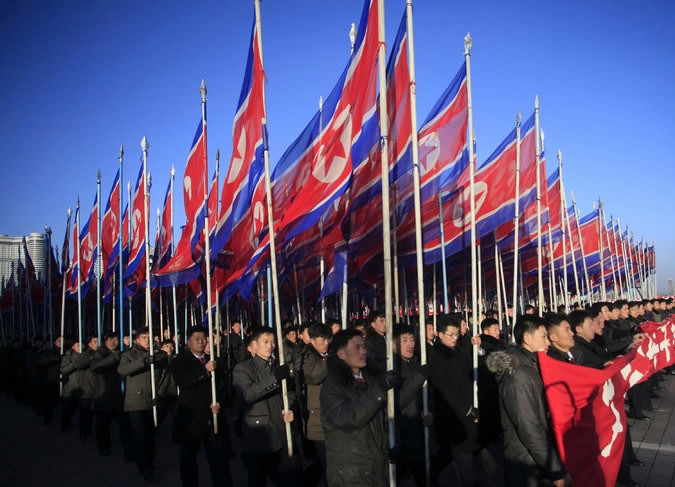
A DPRK parade. /AP Photo
A DPRK parade. /AP Photo
Even though sanctions are basically a complete failure in two-thirds of the time, economic sanctions have been used much more frequently as a tool of international diplomacy since the end of the Cold War.
Veteran diplomat Sir Jeremy Greenstock, Britain's ambassador to the UN between 1998 and 2003, said the fundamental reason for the popularity of sanctions is "that there is nothing else between words and military action if you want to bring pressure upon a government."
PIIE's research also found that the more countries supporting the sanctions, the greater the chances they will work.
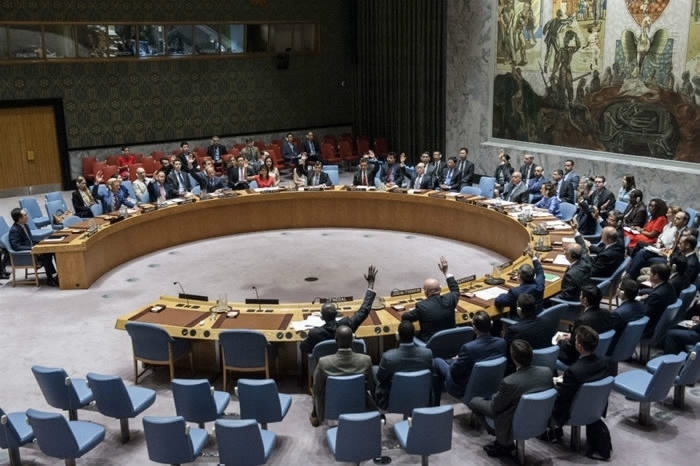
The UN Security Council unanimously adopts a resolution on non-proliferation of nuclear weapons and the intercontinental ballistic missile program by the DPRK on August 5, 2017. /UN Photo
The UN Security Council unanimously adopts a resolution on non-proliferation of nuclear weapons and the intercontinental ballistic missile program by the DPRK on August 5, 2017. /UN Photo
Sanctions not ultimate goal, talks welcomed
China, as a member of the UN Security Council, voted in favor of the resolution. Earlier this year, China suspended imports of coal from its neighbor to increase pressure on Pyongyang. It also pushed for the resumption of dialogue and has worked towards the de-escalation of tensions on the Korean Peninsula.
"Sanctions are needed, but they are not the ultimate goal," Chinese Foreign Minister Wang Yi said on Sunday at the sidelines of the ASEAN-China meeting in the Philippine capital, Manila.
"The goal is to pull the nuclear issue back to the negotiating table and seek a way out through talks until denuclearization and peace are achieved on the peninsula."
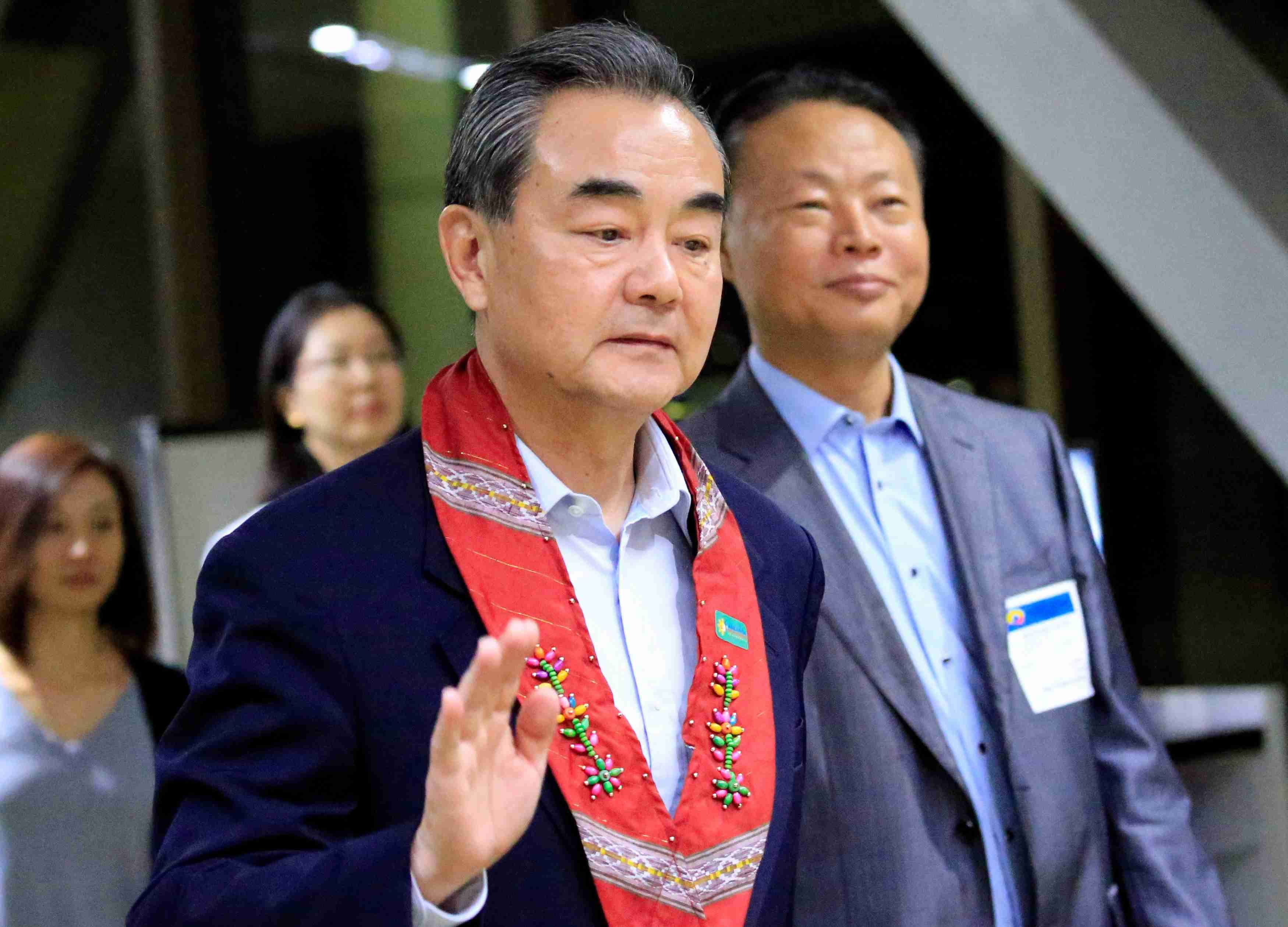
Chinese Foreign Minister Wang Yi arrivals at the international airport of Pasay to attend the 50th ASEAN Foreign Ministers meeting, metro Manila, the Philippines, Aug. 5, 2017. /Reuters Photo
Chinese Foreign Minister Wang Yi arrivals at the international airport of Pasay to attend the 50th ASEAN Foreign Ministers meeting, metro Manila, the Philippines, Aug. 5, 2017. /Reuters Photo
The Chinese official stressed the resolution's call for the resumption of the Six-Party Talks and reiterated the "double suspension" proposal – the suspension of Pyongyang's missile and nuclear tests in exchange for the suspension of US-South Korean military drills near the DPRK – to resolve the Korean Peninsula crisis. The proposal was also backed by Russia.
US Secretary of State Rex Tillerson said on Tuesday Washington would like to have a dialogue with Pyongyang.
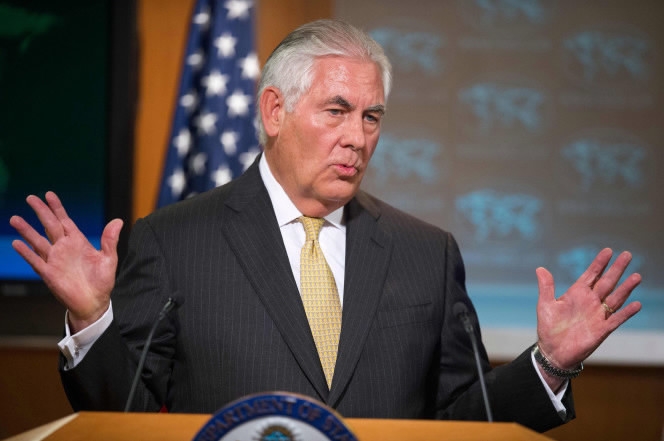
US Secretary of State Rex Tillerson /AFP Photo
US Secretary of State Rex Tillerson /AFP Photo
"We do not seek a regime change. We do not seek the collapse of the regime. We do not seek an accelerated reunification of the peninsula," Tillerson said.
"We are not your enemy. We're not your threat, but you are presenting an unacceptable threat to us, and we have to respond," he added.
Related stories:

SITEMAP
Copyright © 2018 CGTN. Beijing ICP prepared NO.16065310-3
Copyright © 2018 CGTN. Beijing ICP prepared NO.16065310-3